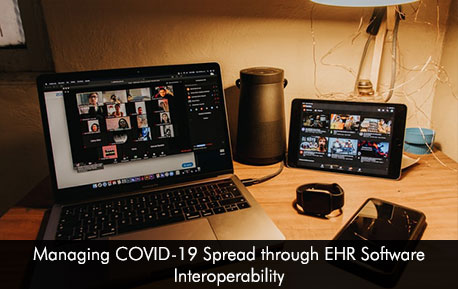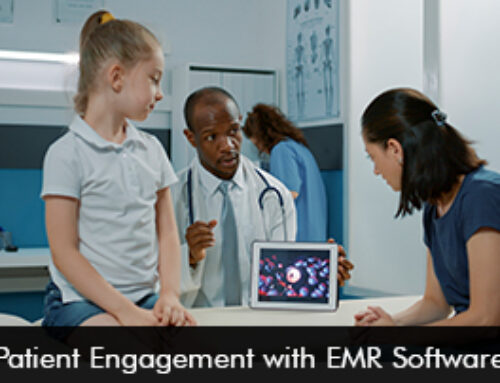Improved interoperability plays a major role in the COVID-19 pandemic. Effective data exchange can help respond promptly to the virus. Covid-19 related data is very useful for making important decisions related to ICU rooms, where to build temporary hospitals or where to boost supplies of ventilators, protective gear, and diagnostic tests to respond rapidly.
Interoperability in EHR Software
Here are the 3 ways how interoperability addresses the pandemic with effectiveness.
- Data-sharing is crucial among health care providers and public health officials – Data sharing has become more important than ever with the COVID-19 pandemic. Effective data sharing between health care providers will help to identify common trends in symptoms, recovery times, and mortality rates across different hospital facilities.
- To prevent the spread of the virus and optimize hospital capacity – Interoperability has helped to screen and triage apps to connect to existing data systems which acts as data points that can be used to direct through the patient care process. To make remote patient monitoring effective there is a need for seamless data exchange between EMRs, screening applications, and telemedicine solutions.
- Can help give answers to crucial questions – Perspective analysis on outbreak data via models and algorithms can give possible outcomes. Data visualizations and stimulated disease models provide data that helps policymakers and government authorities to comprehend and understand the spread of the virus which helps to forecast at the local level.
Conclusion
The examples of data flow and interoperability are crucial and valuable for health care professionals to speed up vaccine development, for triaging clinician resources and for making decisions related to hospital supply allocation and setting up of temporary hospital units. Overall interoperability helps to respond better and promptly to the virus and enhance care coordination and reporting. An effective data management system would also allow hospitals to transmit screening results and other records through a secure portal. Health care data interoperability is the key to effective data management. Governments and regulatory authorities are making sure that medical institutions follow data interoperability standards through HIPAA Compliance and HL7 which is designed to be implemented easily across a variety of systems. Proactive and secure data sharing has become more crucial than ever.







